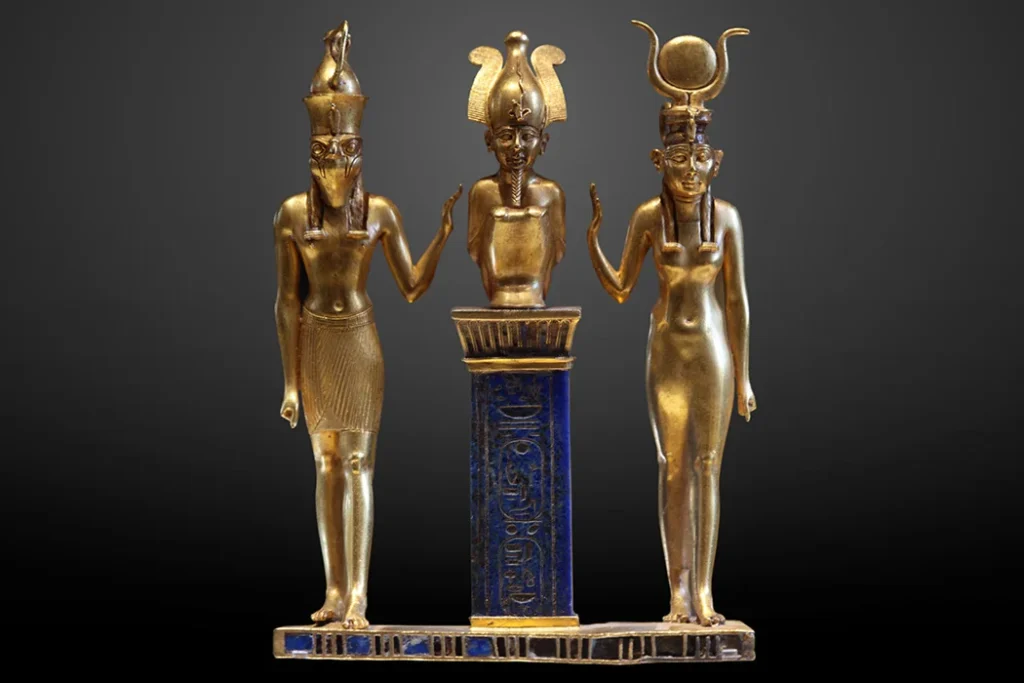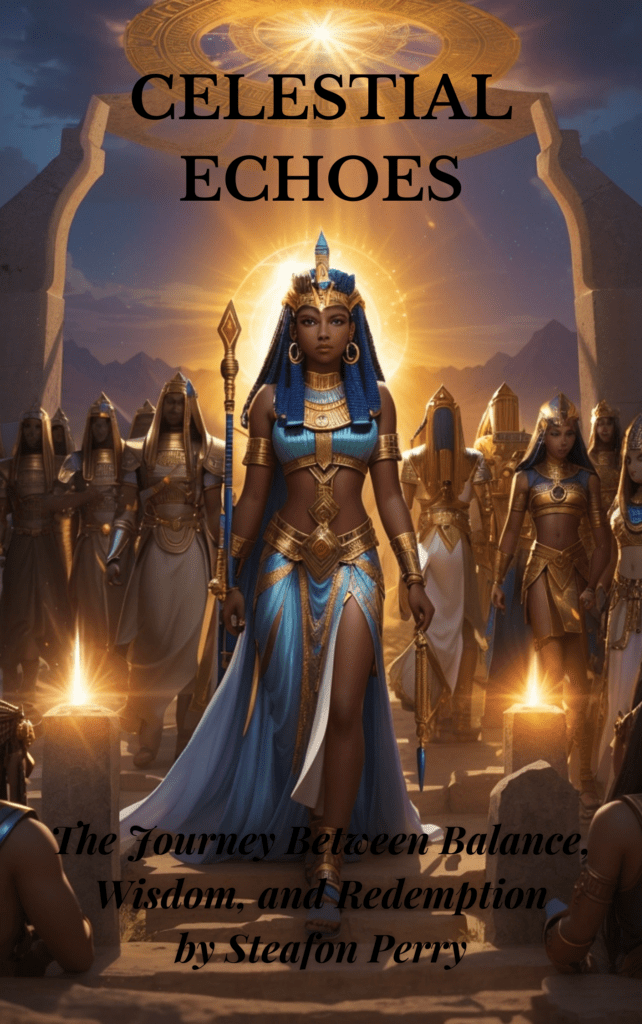Ancient Egypt’s Wisdom and Its Connection to the Hebrew Genesis

A Tale of Myths and Universal Truths What if I told you the stories we learn in history and religion might have roots in the myths of one of the world’s oldest civilizations—Ancient Egypt? The Egyptians were not just pyramid builders or skilled artists; they were incredible thinkers who tried to understand the mysteries of the universe through stories called myths. Throughout history, mythology has provided a framework for understanding the world, shaping our beliefs and behaviors. Among the most compelling mythologies are those of Ancient Egypt, which offer rich stories of creation, morality, and cosmic order. Interestingly, these narratives share profound parallels with the Hebrew Genesis, suggesting a tapestry of interconnected ideas that transcend cultures. Let’s explore how Ancient Egyptian wisdom resonates with the Genesis story and its universal themes. These myths were full of symbolism, representing forces of nature, human emotions, and cosmic struggles. Over thousands of years, this wisdom spread far and wide, influencing other cultures. One of the most fascinating connections can be found in the Hebrew Bible’s Genesis story. Let’s explore how the Egyptians shaped ideas about creation, life, and even morality. What Is Mythology, and Why Is It Important? Before science existed to explain things like why the sun rises or what causes thunder, humans relied on imagination. Mythology is like the first version of science and philosophy wrapped up in colorful stories. For example, when Egyptians wondered about the wind’s invisible strength, they didn’t call it “air pressure.” Instead, they said, “That’s Shu, the god of air, keeping the sky high above us.” But myths were more than just explanations. They also taught lessons about life, nature, and relationships. For the Egyptians, myths weren’t just stories—they were the foundation of how they viewed the world. Through their myths, they passed down knowledge from one generation to the next. Why Should We Care About These Myths Today? Even though Egyptian myths were created thousands of years ago, they are still relevant. They shaped other cultures, including Greek, Roman, and Hebrew traditions. Ancient Egyptian stories gave rise to many of the ideas in Genesis, such as the idea of a divine order, the fight between good and evil, and the creation of the world. The Origins of the Universe: From Chaos to Order In both Egyptian mythology and the Hebrew Genesis, creation begins in chaos. The Egyptians imagined a vast, formless abyss called Nun, a watery expanse containing infinite potential. Out of Nun emerged the first land, the Benben, on which the god Atum stood to initiate creation. Similarly, Genesis describes the Earth as “formless and empty,” with “darkness over the surface of the deep.” This watery void represents a state of unmanifested potential that God transforms through the act of creation. Egyptian Influence on Hebrew Genesis The Hebrew Bible’s Book of Genesis contains two creation accounts (Chapters 1-2) that have been compared to ancient Egyptian creation myths. Scholars have identified similarities and parallels between the two traditions. Similarities: Cosmogony: Both Egyptian and Hebrew creation accounts describe the creation of the world from a primordial chaos. In Genesis 1:2, the “earth was without form and void” (tohu wabohu), echoing the Egyptian concept of the universe emerging from a state of disorder. Divine Creation: Both traditions feature a divine creator god. In Genesis, Elohim (the Hebrew generic word for “god”) creates the heavens and earth, while in Egyptian mythology, the sun god Atum or the god Khnum are credited with creation. Creation of Humans: Both accounts describe the creation of humans. In Genesis 2:7, God forms Adam from dust, while in Egyptian mythology, the god Khnum creates humans from clay or mud. Differences: Monotheism: The Hebrew Bible presents a single, all-powerful God (Yahweh), whereas Egyptian mythology features a pantheon of gods and goddesses. Creation Methods: In Genesis, God creates through spoken words (Genesis 1:3-31) and direct action (Genesis 2:4-25), whereas Egyptian mythology often depicts creation through the actions of multiple gods and goddesses. Purpose of Creation: Unlike Egyptian mythology, which is about how the world is controlled by natural cycles and the balance of opposing forces, the Hebrew story is about how God made people in his own image (Genesis 1:26–27) and how God made a promise to live with people forever. Influence of Egyptian Mythology on Hebrew Bible Scholars have identified several parallels between Egyptian mythology and the Hebrew Bible, including: Yahuda’s Similarities: In the 1930s, scholar Benno Yahuda identified similarities between Genesis 1-2 and ancient Egyptian texts, including the creation of humanity and the use of symbolic language. Gordon’s Parallels: In 1982, Cyrus Gordon drew parallels between the Egyptian creation myth of Khnum and Genesis 2:4-25, highlighting the shared themes of creation and humanity. Hoffmeier’s Cosmology: In 1983, James Hoffmeier examined the similarities between Genesis 1-2 and ancient Egyptian cosmology, noting the shared concepts of creation, chaos, and the role of the creator-god. While the Hebrew Bible’s Genesis account is distinct from Egyptian mythology, it is clear that there are similarities and parallels between the two. The Hebrew account’s unique themes and tone, however, set it apart from Egyptian mythology. The Hebrew account differs from other traditions in its emphasis on monotheism, covenant, and rejection of Egyptian polytheism, despite sharing comparable themes and symbols. This complex interplay of influences and polemics reflects the dynamic cultural exchange and theological debate between ancient Israel and Egypt. Water as a Symbol of Potential Egyptian Mythology: Water signifies the primordial chaos from which life emerges. Genesis: Water acts as the foundation of creation, divided to form the heavens and the Earth. Both traditions emphasize a shift from disorder to structure, underscoring humanity’s deep need to impose meaning on the unknown. The Power of Light For the Egyptians, light was the ultimate symbol of life and order. Every morning, the sun god Ra was born, bringing light to the world. But this wasn’t an easy task—Ra had to battle the serpent Apophis, a creature of chaos and darkness, every single night. In Genesis, light also plays a starring role. It’s
Book Title: Goddess Sopdet and the Quest for Redemption – A Review

A Mythic Journey Between Light and Shadow About the Book In a world where the delicate balance between light and shadow is eternally threatened, one goddess stands between salvation and ruin. Goddess Sopdet and the Quest for Redemption weaves together cosmic mythology, ancient Egyptian lore, and a gripping tale of sacrifice and hope. Sopdet, the celestial goddess of Sirius, is called once again to descend from the stars and restore balance in a world teetering on the brink of chaos. A darkness, ancient and insidious, stirs in the mortal realm, threatening to consume both gods and men alike. With the help of a brilliant astronomer, a haunted priestess, and a noble warrior willing to give his life, Sopdet embarks on a perilous quest that will test the very limits of her divine power—and her humanity. But as they face the shadowy forces of Nechmet and unravel the mysteries of an even greater threat lurking in the void, Sopdet must confront her deepest fears and the echoes of her past failures. Will she overcome the darkness within and without? Or will the shadows that stir on the horizon claim the world? Why You’ll Love This Book Epic World-Building: Step into a realm where the gods walk among mortals, where cosmic forces clash, and where ancient Egypt’s most mysterious wonders come to life. Complex Characters: Follow the journey of a goddess grappling with her own divine nature, alongside a diverse cast of mortals bound by fate and choice. Themes of Sacrifice and Redemption: This is more than just a battle between good and evil. It’s about what we’re willing to sacrifice to protect the ones we love and how we find redemption in the most unexpected places. Cosmic and Mythological Intrigue: A story that draws on ancient myth while exploring the timeless struggle between light and shadow, order and chaos. What Readers Are Saying A breathtaking blend of mythology, cosmic adventure, and heart-wrenching emotion.”_ Kev Eisenhauer “Sopdet’s journey is a powerful reminder of the balance between light and darkness—both within and outside of us.”_ Valborg Kanazawa “A beautifully woven tale of sacrifice, faith, and the eternal dance of light and shadow.”_ Carla Madetoja Sneak Peek Excerpt: “The stars have always been our guide,” Sopdet said softly, her gaze drifting back to the night sky. “They’ve shown us the way forward, even in the darkest of times.”* About the Author As a lifelong explorer of mythology and cosmic themes, Steafon Perry has crafted Goddess Sopdet and the Quest for Redemption as the first book in the _Celestial Echoes_ series. With a passion for blending ancient lore with modern storytelling, Steafon creates stories that explore the timeless struggle between light and shadow, gods and mortals, and the cost of finding balance in an ever-changing world. Get Your Copy Today Join Sopdet on her epic quest for redemption! Available now in ebook and paperback formats.